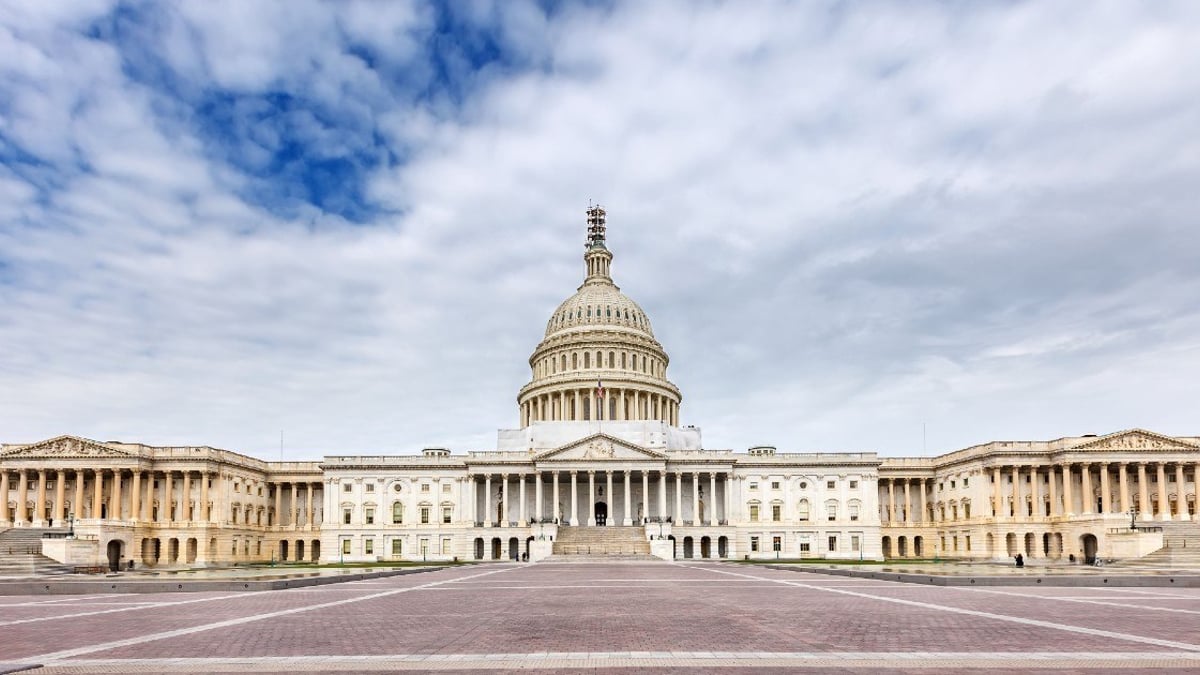Coming Soon: Federal Oversight Of Online Betting

A bill that would prohibit most sports betting advertisements was introduced by Rep. Paul Tonko (D-NY).
Tonko is an eight-term congressman; before that, he spent two decades in the New York Assembly. He has been a champion of mental health issues (passing Timothy’s Law in New York in 2006) and sees sports betting in this light.
“The excessive, uncensored promotion of these sites needs to be put in check,” Tonko said in a press release. “My legislation puts a halt to this dangerous practice and sends a powerful message to the online sports betting advertisers. Congress must take the necessary steps to reel in an industry with the power to inflict real, widespread harm on the American people.”
The Betting on our Future Act is modeled after the Federal Cigarette Labeling and Advertising Act, which banned tobacco advertisements. If enacted, it would make it “unlawful to advertise a sportsbook on any medium of electronic communication subject to jurisdiction of the Federal Communications Commission, such as TV, Radio, or the internet.”
As reported on the Gambling.com Insiders Page, the American Gaming Association (AGA) issued a statement opposing the bill.
The AGA's Chris Cylke said, “The American Gaming Association (AGA) and our members adamantly oppose any legislation that seeks to ban or limit casino gaming advertising, including for legal sports betting."
Does this Sports Betting Bill Have a Chance?
Whether the bill passes shouldn’t be the industry’s sole concern. This is an opening salvo, and the goal may simply be a hearing, where all the dirty laundry is aired out.
Massachusetts regulators just finished grilling the industry over its practices and received significant concessions from operators. A congressional hearing (likely to include anti-gambling witnesses) will make the Massachusetts hearings feel like a Swedish massage.
The industry has had ample opportunity to self-regulate. While it has done an excellent job in some areas, like taking responsible gaming seriously, it has more or less nibbled around the edges.
Sportsbooks Have Ignored Warnings
“Don’t allow your marketing staff to operate unchecked … If they are, they will be checked by us, and it will happen in a way you won’t be happy with.” That was the warning issued by New Jersey Division of Gaming Enforcement Director David Rebuck at a September 2021 GeoComply webinar titled, The Do’s & Do Not’s of Advertising and iGaming.
Rebuck wasn’t the first (or last) to issue this warning. During the same webinar, Dan Hartman, the Colorado Division of Gaming Director, said, “Sportsbooks need to find a balance because the last thing you want is to have advertising legislated.”
The industry is listening to the message, but it’s not hearing it. It’s saying all the right things about advertisements and touting its successes. Still, marketing pullbacks have been financially motivated, not a concern about the amount of advertising bombarding customers.
Federal involvement is something a handful of people have feared since the Supreme Court overturned PASPA, and a marketing crackdown is a klaxon alarm I’ve sounded since before the first non-Nevada sportsbooks launched. The level of advertising cannot go unnoticed.
A Bipartisan Effort in 2018
This is not the first time the federal government has dipped its toe into the sports betting conversation. In September 2018, the House Judiciary Subcommittee on Crime, Terrorism, Homeland Security, and Investigations held a hearing on sports betting. And in December 2018, Sen. Orrin Hatch and Sen. Chuck Schumer introduced the Sports Wagering Market Integrity Act.
The legislation didn’t go anywhere, but unlike Tonko’s targeted bill, the Sports Wagering Marketing Integrity Act was a sweeping piece of legislation that sought federal oversight on numerous parts of the industry, including:
- Setting minimum standards for state laws.
- Requiring states to submit proposals to the federal government for approval.
- Imposing consumer protections like national self-exclusion.
- Installing a Bad Actor clause prohibiting operators that accepted U.S. bets post-2006.
- Establishing a sports betting clearinghouse to track all bets.
- Creating a Gambling Research Advisory Committee.
The comprehensive approach didn’t work in 2018, but Tonko’s legislation could be a jumping-off point for more extensive conversations. And it should be pointed out that Schumer is still in the Senate and is now the Majority Leader – although the sports betting situation in his home state has changed a lot since 2018, and he may not want to upset the apple cart.
Be first to get our exclusive sports offers!
Join today to stay up to date on your states gambling news and offers.








